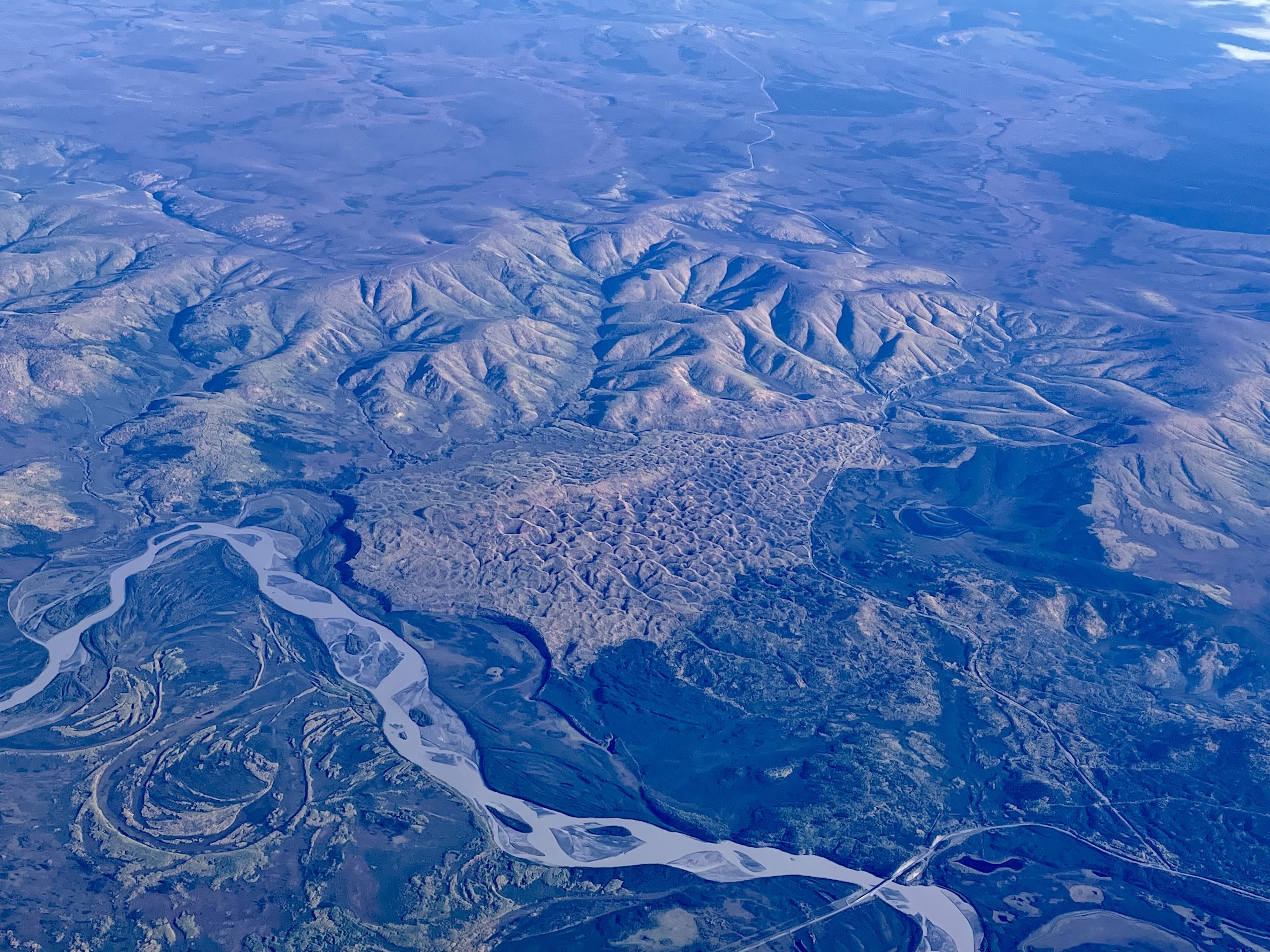ภึปขึฑฒฅ sand dunes hint at ancient past
Ned Rozell
907-474-7468
Sept. 22, 2022

The Nogahabara Sand Dunes in the Koyukuk Wilderness Area west of the Koyukuk River and the villages of Hughes and Huslia.
Sitting at a window seat on a recent flight from Seattle to Fairbanks, I looked down on ภึปขึฑฒฅ from 35,000 feet.
There was my home river, the Tanana, flowing gray and braided from near the Canada border. The ภึปขึฑฒฅ Highway followed the riverโs curves.
Near the town of Tok, a wedge of sharp hills looked different from the surrounding, more rounded ones. ภึปขึฑฒฅ Highway 5 โ the Taylor Highway โ cut through the strange bumps.
The landform, accentuated by the glow of fall foliage, was a large sand dune complex. When you drive the 160-mile Taylor Highway to Eagle or use it to get to Dawson City in the Yukon, you notice a road cut where people over the years have set rocks in the sand to spell out their names.
I sent a window-seat photo of the scene to Dan Mann, a ภึปขึฑฒฅ scientist. He said the Taylor Highway runs through sand dunes that formed a long time ago.
โYou can see from their orientation that they were fed by sand blowing northwards off a barren and expanded Tanana (River) floodplain.
โThe sand was coming from glaciers in the Wrangell and Nutzotin mountains to the south and east. There are smaller patches of dune all along the Tanana River up to the Canada border, and just across the border there is an enormous dune field that I think is much older.โ

A map shows the location of the Kobuk and Nogahabara sand dunes in ภึปขึฑฒฅ.
The vegetated dune at the Taylor Highway turn is small compared to some in ภึปขึฑฒฅ that make you feel you are in the Sahara, except for the moose tracks.
The Nogahabara Sand Dunes โ west of the Koyukuk River and the villages of Hughes and Huslia โ are a whitish splotch on the face of ภึปขึฑฒฅ that covers 26 square miles.
Even larger and more visited for their proximity to the Kobuk River in northwest ภึปขึฑฒฅ are the Great Kobuk Sand Dunes (38 square miles). Not far from them are the Little Kobuk Sand Dunes (5 square miles). Like the Nogahabara dunes, both sets of Kobuk dunes are active, still migrating via the wind at speeds up to three feet per year. This movement smothers tree seedlings before they can make a go of it.
In a 1990 paper, Peter Lea and Chris Waythomas mapped out the active and inactive sand bodies in ภึปขึฑฒฅ. Sand is just about everywhere that glaciers were not during the last ice age, but most of the dunes are now covered with trees and shrubs. Large sand deposits remain on ภึปขึฑฒฅโs North Slope, the Seward Peninsula and all through Southwest and Interior ภึปขึฑฒฅ (where the Taylor Highway dune is located).

A vegetated sand dune that formed between the Tanana River, Interior ภึปขึฑฒฅ hills and the Taylor Highway, as seen from a flight from Seattle to Fairbanks. The ภึปขึฑฒฅ Highway Bridge over the Tanana River is visible at bottom.
In a study of the Nogahabara dunes, scientists including Mann wrote that one of the active dunesโ values is continuing to host plants like an Asian sedge that are relics from the time of the Bering Land Bridge. The Nogahabara is also home to the sandy tiger beetle and the ภึปขึฑฒฅ tiny shrew, which are both found almost nowhere else in the state.
Sand deposits everywhere in ภึปขึฑฒฅ harken back to a time thousands of years ago when big winds blasted fine particles of glacier-ground mountain a long way. It must have been an unpleasant time to be walking around ภึปขึฑฒฅ, but scientists like Mann are fascinated with what it left behind.
โภึปขึฑฒฅโs sand seas are super interesting and poorly understood,โ Mann said.
Since the late 1970s, the ภึปขึฑฒฅ' Geophysical Institute has provided this column free in cooperation with the UAF research community. Ned Rozell is a science writer for the Geophysical Institute.


